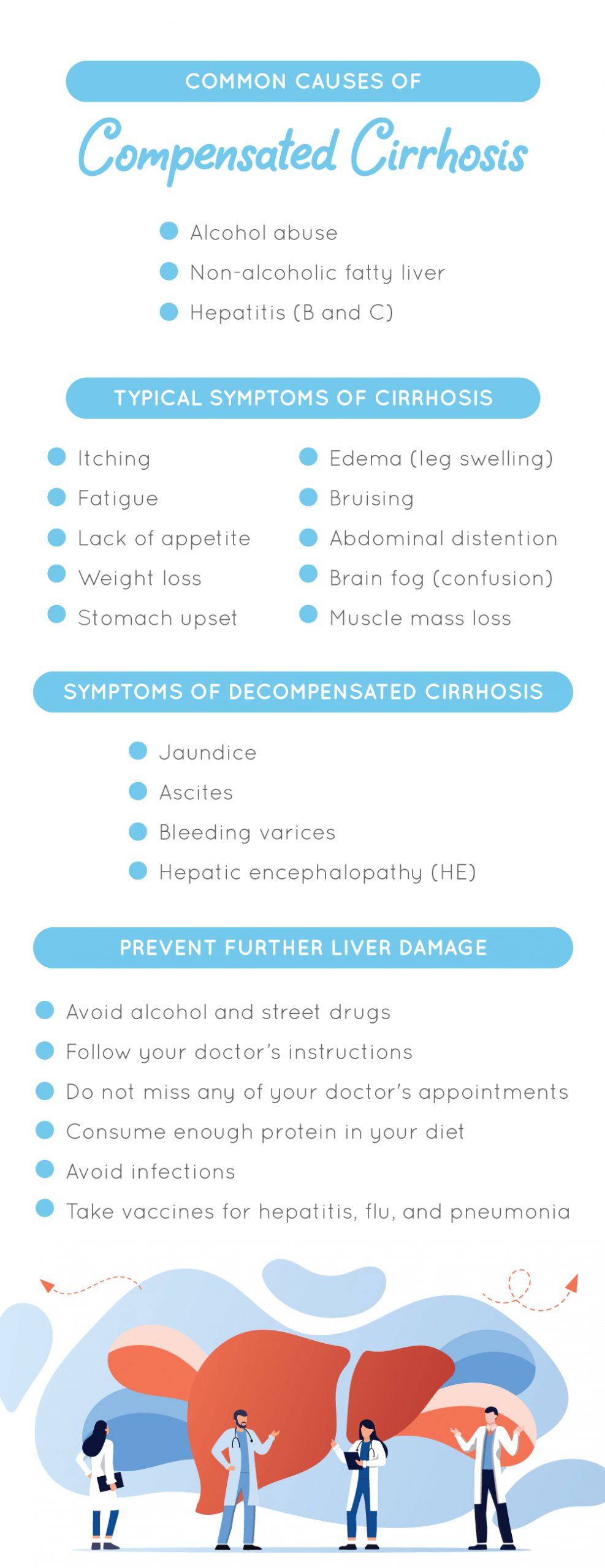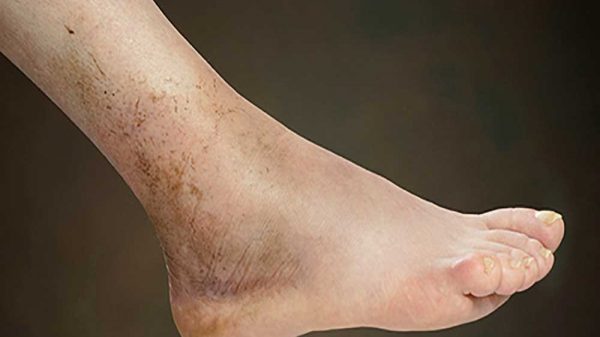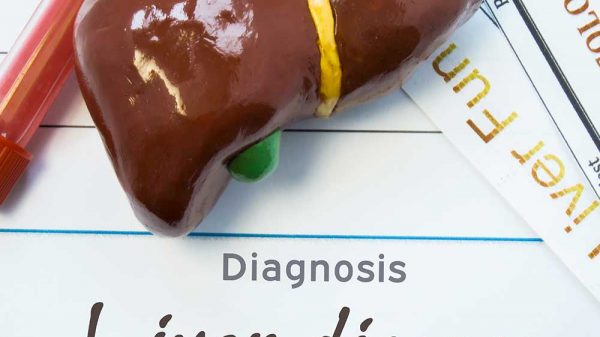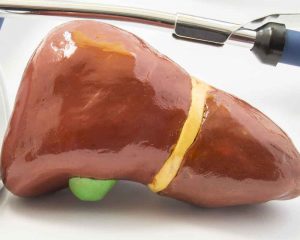Liver damage could be little, mild, moderate, or severe. Moderate liver damage is called fibrosis, while severe liver damage is called compensated cirrhosis. However, when there is liver failure, it is called decompensated cirrhosis. Usually, medical tests would determine the stage or grade of liver damage if there is any. It could range from mild liver damage to fibrosis or cirrhosis, and to liver failure. But then, a lot of people can live with liver damage for many years without knowing. They only get to know when the liver damage has become so severe and the liver is almost failing. Some would not even realize until they have liver failure.
So then, it is important to understand the symptoms of cirrhosis, so that you can get medical help early on if you have it. One thing with liver damage is that if you find out before the damage affects two-thirds of the liver; you have a better chance of getting your liver back to its proper function. Anything later than that could be fatal. There are a few symptoms that people feel when there is compensated liver damage. These symptoms may be so subtle and hard to pick sometimes. But if you understand how your body functions and you are attentive to the signs it gives you, you should be able to pinpoint them.
What You Should Know About Compensated Cirrhosis
Like we said earlier, the symptoms of compensated cirrhosis are very subtle. It may seem like you are almost not having any symptoms at all. This is mainly because the symptoms develop gradually, and not suddenly. So your body may somehow be adjusting to cope with the live dysfunction.
When cirrhosis is at the compensated stage, it means that your liver is still coping with many of its tasks. You still have healthy cells that can make up for damaged ones. Scar tissues may have replaced several healthy cells already, but there are still enough healthy cells.
A lot of people may live with severe liver damage for many years and not have liver failure. But then, if the condition is not well-monitored and cared for, liver failure may eventually occur. That is usually fatal and often leads to death.
Since the symptoms are very subtle, it is usually better to go for routine checkups regularly. So long as you discover it on time, you will be told what to do to prevent further damage.
Cirrhosis is usually not a primary condition. It is mostly a complication of another liver disease or problem. So then, to treat cirrhosis, you must treat the primary condition. Else, the cirrhosis is bound to get worse over time and lead to liver failure.
So then, if your doctor diagnoses cirrhosis, you should also find out what caused the cirrhosis so that you can treat it properly. Common causes of compensated cirrhosis are as follows:
- Alcohol abuse: If you drink too much alcohol or you have drinking problems, you should get help. Alcohol causes harm to your liver. So speak with your doctor if you have problems with alcohol abuse.
- Non-alcoholic fatty liver: If you have cirrhosis due to fatty-liver disease, you can improve the health of your liver by losing weight. Keeping your blood sugar under control would also help a lot
- Hepatitis (B and C): There are medicines for treating hepatitis. If you have any of these, you should get the proper medications to stop further liver damage.
What Are The Typical Symptoms of Cirrhosis?
A person can stay alive for many years not knowing that they have liver damage. There may be almost no symptoms at all. However, there are some subtle symptoms you may feel if you have compensated cirrhosis. They are as follows:
| Itching | Edema ( leg swelling) |
| Fatigue | Bruising |
| Lack of appetite | Abdominal distention |
| Weight loss | Brain fog |
| Stomach upset | Muscle mass loss |
People with liver disease are also very prone to developing liver cancer. And liver cancer may be asymptomatic until liver cancer has reached an advanced stage and has grown so large, causing pain.
So if you have any form of liver damage, you should go for regular ultrasound screenings to test and monitor your liver. If you detect cancer early enough, you have a better chance of survival.
How then do you know if your liver damage is becoming decompensated? The symptoms would usually change and become more severe. Some other symptoms that show up when cirrhosis becomes decompensated are as follows:
- Jaundice: Jaundice develops when you can no longer eliminate bilirubin because of liver damage. Bilirubin is a waste product from the breakdown of aged blood cells. When there is too much bilirubin, your eyes and skin may turn yellow.
- Ascites: This refers to the accumulation of fluid in your abdomen. Ascites occurs when your liver can no longer produce enough proteins to create oncotic pressure. As such fluid leaks out of the cells into your peritoneal cavity and causes your belly to swell.
- Bleeding varices: Varices refer to blood vessels that become enlarged. You know there are bleeding varices when you have bloody, tarry, or black bloody or when you are vomiting blood. This is a medical emergency that requires immediate treatment.
- Hepatic encephalopathy (HE): The liver is vital for detoxification. So when the liver shuts down, toxins may accumulate in different parts of your body, including the brain. This can cause confusion, extreme tiredness, and trouble with concentration and focus.
How to Treat Severe Liver Damage
If you have severe liver damage, even if it is compensated, you still need to get proper treatment. Otherwise, the damage would progress and may eventually lead to liver failure. You can do the following things to prevent further liver damage:
- Avoid alcohol and street drugs
- Follow your doctor’s instructions to the letter, including all the prescribed medicines.
- Do not any of your doctor’s appointments. Go for follow-up as at when due
- Consume enough protein in your diet.
- Avoid infections
- Take vaccines for hepatitis, flu, and pneumonia
If you do all of these when you have compensated cirrhosis, it most likely will never become decompensated. So then, you can preserve the functions of your liver and prevent liver failure even if you have severe liver damage.
























